Moglix enroute the next wave of rapid growth
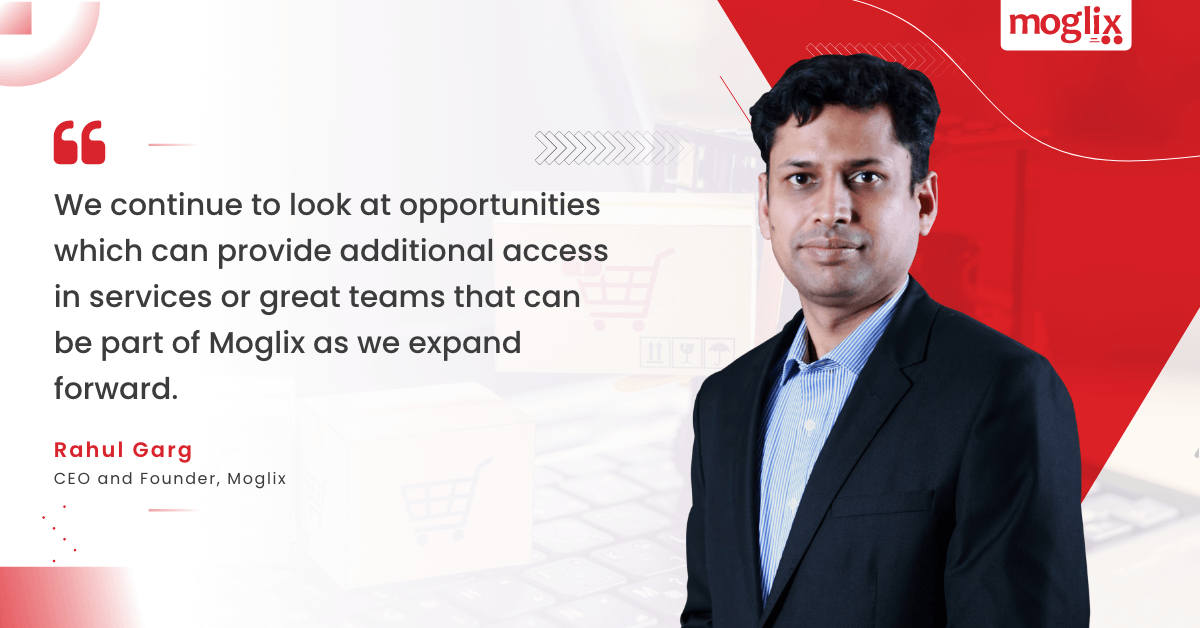
Moglix enroute the next wave of rapid growth
Rahul Garg, CEO and Founder recently shared his vision on how Moglix is gearing up for the next wave of rapid growth. He also mentioned that based on various strategic initiatives and strong financial performance last year Moglix is planning to break even in 18 months.
Expanding to newer geographies will also part of his rapid growth strategy, though he believes that it won’t be as straight forward as it sounds, since there aren’t many companies in the similar space.
“There are a lot of things that we need to do as an organization to expand [such as] grabbing more of the market share. We have the best global names that can be on any cap table. So, I think working together to expand globally is the key thing for us”
Pitching For A Procurement Transformation? Here’s Your Checklist Before You Take the Big Leap

Pitching For A Procurement Transformation? Here’s Your Checklist Before You Take the Big Leap
Procurement transformation is a continuous process evolving with technological leaps and digital revolutions. Touchless procurement, ease of discovery, catalog-based buying, sustainable procurement, catalyzed ESG policies, and visibility across the value chain are some benefits that can emerge from a procurement transformation if executed with precision and fastidiousness. However, pitching for procurement mutation can be a tricky task.
Pitching to the Manufacturing Head
A presentation is more likely to succeed with the manufacturing chief if it pivots around the overwhelming importance of digitization and decentralization. A catalog-based purchase platform will tabulate and digitize the list of reliable vendors, which will, over time, aid in filtering out suppliers whose performance and cost-effectiveness outmatch others.
Pitching to the CFO
If a pitch must be made to the CFO, the procurement transformation is more likely to come to fruition if it emphasizes the anticipated cost reductions that will accompany the weeding out of teams engaged in non-value-generating activities.
Pitching to the CEO
A procurement transformation prioritizing customers and their responses will draw greater attention from the CEO.
Why Does Your Company Need A Procurement Transformation?
1. Evaluating the Topline and Profitability Impact of Procurement Transformation
2. Measuring Success at Each Milestone of the Project
3. Avoiding Common Roadblocks
4. Getting Quick Wins
The Final Word
In the new scenario, a procurement officer will have to forego the reliability, stability and predictability of the old matrix and anticipate new seismic shocks to the procurement chain from all corners. These shocks could be systemic, as was the case with the pandemic or financial, as is the case with inflationary pressures or triggered by larger geopolitical tensions. The work of tightening the nuts and bolts of a procurement pipeline is seemingly unending and is a part of the business hygiene of a company.
The Periodic Table of Leadership: Observations from the Laboratory of Indian Cricket
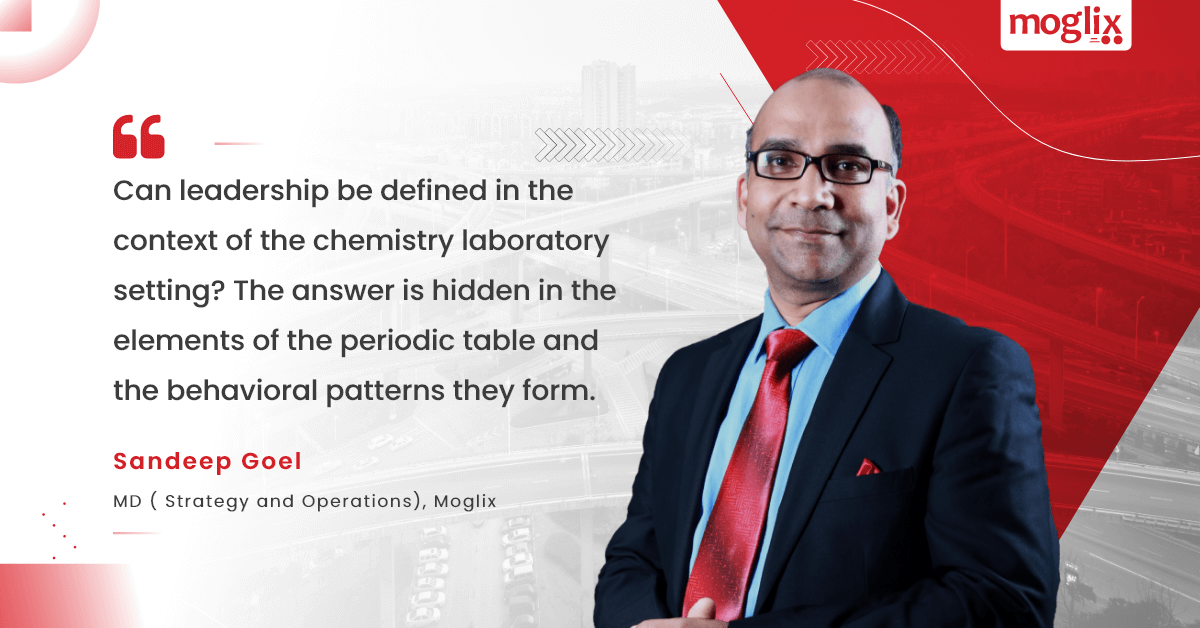
The Periodic Table of Leadership: Observations from the Laboratory of Indian Cricket
As you go from left to right on the periodic table, the acid-base character of elements goes from basic to acidic. Can leadership be defined in the context of the chemistry laboratory setting? Is there a litmus test for leadership in an organization?
What lies beneath this base to acid transformation is a display of multiple elements in leadership among individuals with diverse natures: acidic, basic, and inert. It is also a catalysis of controlled experiments to trigger responses and movements to achieve targeted outcomes.
Three Key Leaders of Team India and the Chemistry They Brought to the Dressing Room
Through the early and mid-nineties, Indian cricket fans remained glued to their television sets to watch one cricketer deliver their hopes and dreams: Sachin Tendulkar. Giving the master blaster good company was his perfect foil and the wall of Indian cricket.
Rahul Dravid, a lone warrior for the Indian cricket team, watching him bat was no less than a pure transcendental meditation.
The third leader in the Indian cricket team is “Lord Snooty.” When Sourav Ganguly captained the Indian side on the field, he had a message for his opponents: “Either you respect Team India out of your volition, or we will make you respect us.”
Testing the Elements of Human Behavior in the Laboratory of Organizational Development
Is it possible to apply the template of the periodic table of human elements of behavior to a real-world laboratory setting of organizational leadership development in the same way as the Indian cricket team discovered its next big leader, Mahendra Singh Dhoni? The answer is hidden in the elements of the periodic table and the behavioral patterns they form.
Need for Speed: Digitalization in the Automotive Industry
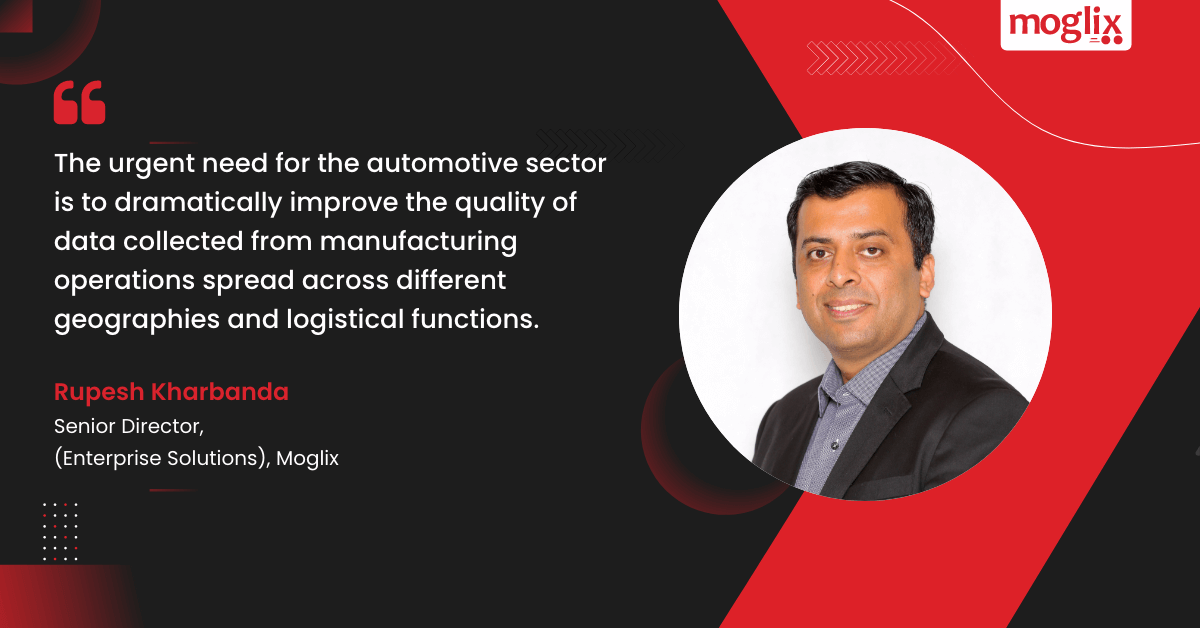
Need for Speed: Digitalization in the Automotive Industry
The automotive industry has emerged as a force to be reckoned with, propelling the economy’s growth narrative with enthusiasm and vigor. According to RBI figures, the industry contributes a significant 10-12% of the GVA of the manufacturing sector, underlining its importance to the economy.
Goals and objectives that automotive firms’ CPOs aim to carve out an intelligent, agile, and future-ready unit.
1. Building Resiliency in Supply Chains, Procurement, and Manufacturing
CPO now needs an anti-fragile supply and value chain that can embrace and adapt to the demand of supply chain flexibility.
2. Building Data and Digital Capabilities in The Value Chain
Digitization took the front seat in the wake of the first lockdown. CPOs across the automotive industry had to think on their feet and ensure that their stalled supply chain remained visible and traceable across the value chain. The right approach to digitization includes the extended vendor network to avoid silos of data collection and visibility down to the last mile.
3. Using Data for Seamless Physical – Digital Integration
A smarter data-intelligent business helps automotive firms eliminate price variations across plants while improving plant visibility and tracking real-time orders. It also sets up evolved ERP planning as a norm across the value chain universe of the automotive firm. High-quality data collected from vendors, OEMs, and suppliers deliver actionable insights to large firms.
The Final Word
Automotive firms were dealt a tough hand during the pandemic, and the more agile among them have responded by initiating a paradigm-changing transformation in the supply chain. Setting aside the threat of disruptions, elevating businesses to achieve holistic data intelligence has yielded impactful results such as improved supply risk management, robust savings on outlays, inventory reduction, and a dramatic fall in supply line choke-ups.
Things CIO Should Know About Procurement Transformation

Things CIO Should Know About Procurement Transformation
Three years back, we chanced upon an opportunity to collaborate with a leading FMCG company in India to fulfill their procurement mandate. However, there were a set of challenges, which could have given the next level of productivity to the business.
- It took 7 days for the procurement team to create the contract since buyers had to use a complex multi-screen application for doing the same
- When buyers logged onto the system, there were 100s of contracts waiting for their attention, with no intuitive way for them to prioritize.
- Buyers were required to fill values for which they had to refer to other systems or offline documents, making it very time-consuming
- Buyers were required to make certain decisions while creating the contract e.g., “mode of shipment”, but they didn’t have sufficient data points around costs and lead time to make the right choices.
- After submitting the contract, they had to wait for a validation report from another team. The team used to revert to them after 2-3 days with errors in their entries.
While the above case is cited in a specific context, the same set of problems are hampering productivity across the procurement function. These problems can be addressed by using 3 simple concepts.
- Super-app Experience
- Procurement Control Tower
- Risk Watcher
Bridging the Divide: Challenges at the doorstep of chemical procurement leaders
The life of procurement officers is challenging and simultaneously demands innovation and efficiency.
Summary
There is still significant room for improvement. And the road to such improvement passes through the office of the CIO.
Procurement challenges and the future of digitalization in the Indian chemical industry
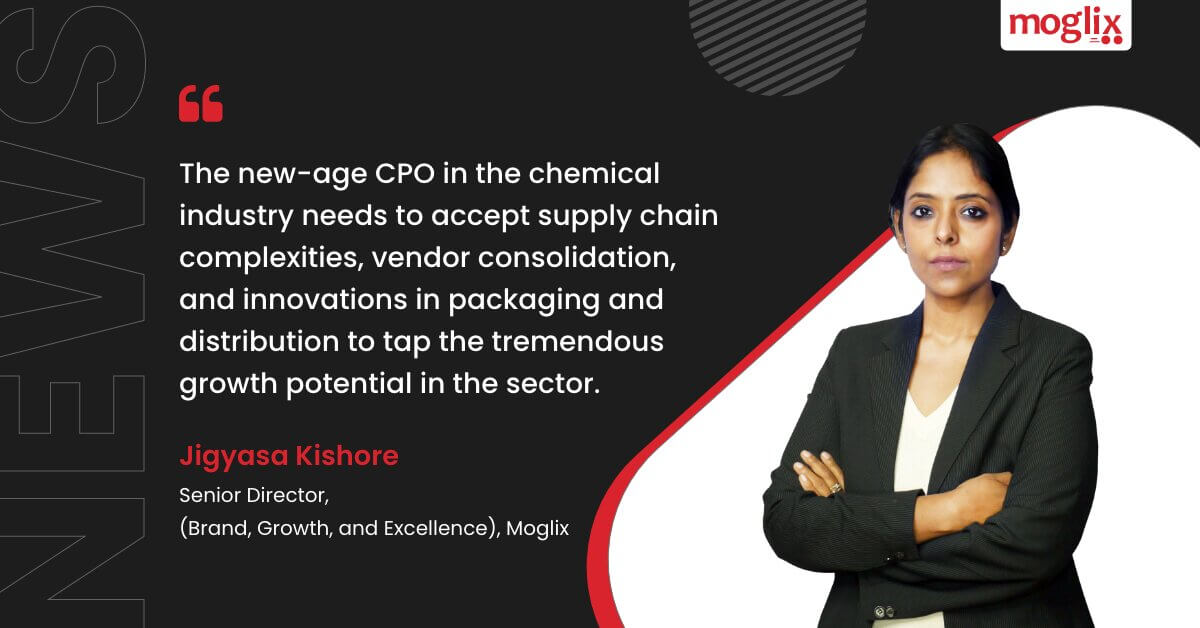
Procurement challenges and the future of digitalization in the Indian chemical industry
The role of the CPO in a critical sector like chemical goes beyond the apparent cost reductions and stability of material sourcing. The new-age CPO in the chemical industry needs to accept supply chain complexities, vendor consolidation, and innovations in packaging and distribution to tap the tremendous growth potential in the sector.
Bridging the Divide: Challenges at the doorstep of chemical procurement leaders
The life of procurement officers is challenging and simultaneously demands innovation and efficiency.
The ever-broadening scope of the supply chain
Chemical handling complexities create a need for specialized lab equipment, safe transportation, and storage options.
The complexities of vendor management
With many specialized vendors, organizations will face challenges of timing, logistics costs, dependability and quality. Transportation of materials is a crucial challenge. Material and human safety, temperature control and brittleness of packaging are essential to smooth operations. Real-time tracking and predictability of bottlenecks alleviate these procurement challenges.
Need for innovation and stability in packaging
As every chemical industry CPO will attest, spillage continues to be a significant concern for every industry player. Due to the hazardous nature of chemicals, storage and transportation is very complex and need specialized training to manage. While glass is the primary choice of storage due to its excellent properties, it is also brittle and prone to breakage.
A shift in global procurement trends
The CPO needs a robust end-to-end procurement platform to help navigate international policy and multi-vendor management.
A positive shift towards sustainability
Innovation requires agility as the nature of procurement could change based on supplier location and pricing considerations. Sustainability is the future and could soon become a higher prioritization parameter than even price.
The advent of digital transformation in the chemical industry
Though the chemical industry is no stranger to digitalization, the pandemic has accelerated the adoption of innovation-led technologies, including but not limited to remote operation centers, industry 4.0, robotics, and autonomous operations in warehouses and logistics.
Moglix Announces Executive Elevations, Strengthens Leadership As It Enters Next Phase Of Growth
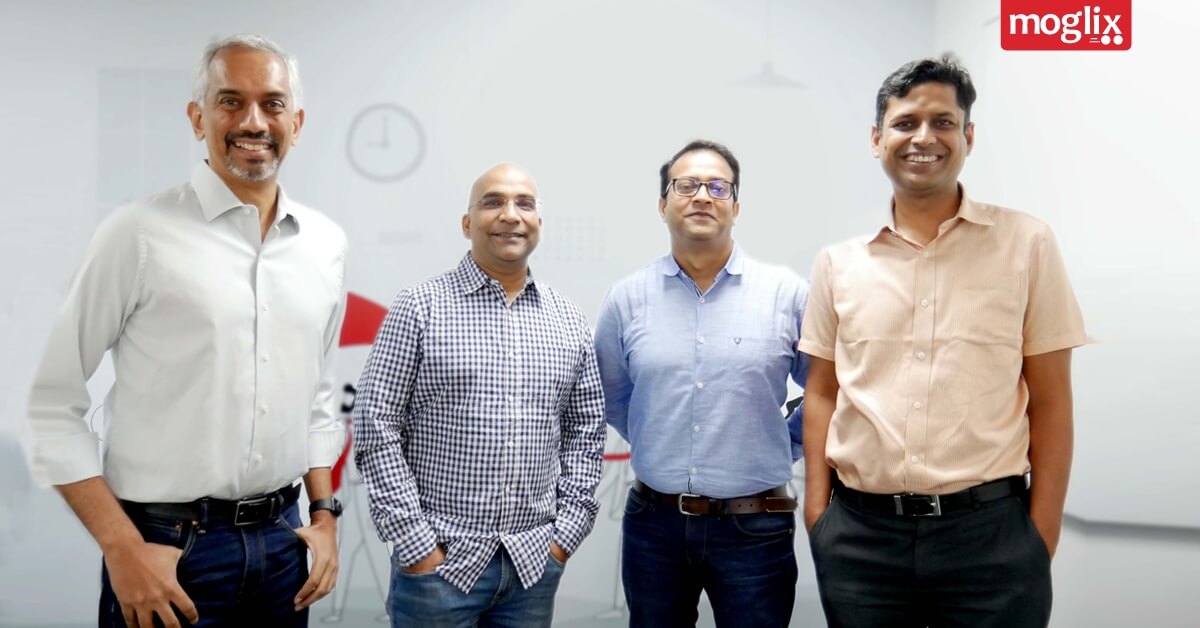
Moglix Announces Executive Elevations, Strengthens Leadership As It Enters Next Phase Of Growth
One of Asia’s largest B2B Commerce companies, Moglix, has elevated three of its senior leaders: Mukund Vasudevan, Partha S. Dash, and Sandeep Goel as the new Managing Directors of the company. The announcement comes as a boost to Moglix’s senior leadership as it is poised for global expansion and growth.
“Moglix is in an exciting phase of growth as we expand our operations globally and deepen our expertise, reach, and impact. It’s great to have three very strong leaders play a larger role in fulfilling our vision of creating tremendous value for the customer as we scale. They are not only experienced, but extremely passionate leaders and their leadership is sure to steer us continuously in the right direction.”
Rahul Garg, Founder & CEO, Moglix added
Mukund Vasudevan joined Moglix in July 2021 to lead strategic partnerships and will now be leading the Enterprise Solutions business vertical, working with our enterprise customers to transform their supply chain.
Partha S. Dash joined Moglix in 2015 and has been a part of the seed to scale journey for the MRO and Packaging verticals. Going forward, he will focus on growing the new business verticals and geographies.
Sandeep Goel joined Moglix in 2018 to lead product strategy and scale the human capital function, building processes and culture as the organization scaled from 300 to 1400 employees during a global pandemic. In his new role, Sandeep will lead strategy and operations.
With end to end supply chain operations from strategic sourcing to financing, Moglix is a global digital supply chain solutions company
How Rewards and Recognition Can Reap Rich Dividends for Organizations in the New Normal
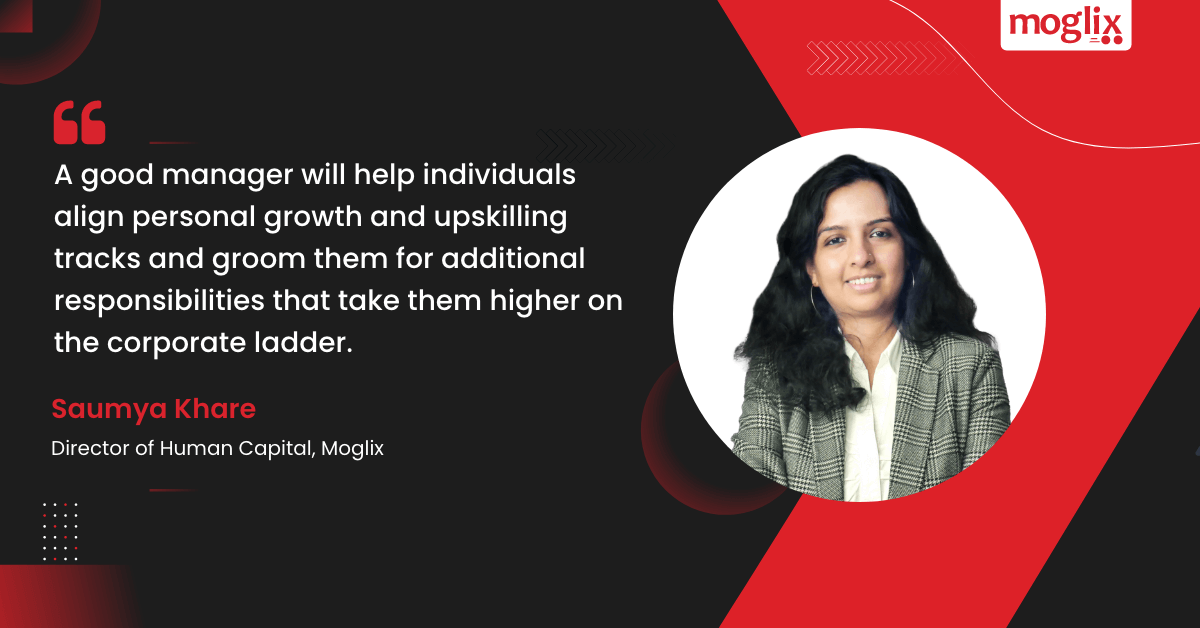
How Rewards and Recognition Can Reap Rich Dividends for Organizations in the New Normal
It is clear that the future of work is hybrid. If 2021 was dubbed the ‘Year of the Great Resignation.’ 2022 is turning out to be the ‘Year of the Great Return.’ The Randstad Work Monitor Survey of 2021 highlights that 85% of employees expect some form of flexible work arrangement in the post-pandemic world.
As the nature of work changes, so must the measure of employee success and engagement. We must examine how the landscape of expectations has shifted for employees in the past two years.
- Transparency and stability: Transparency creates a positive employer brand and adds credibility to every management decision.
- Performance measurement: We all conduct exit interviews. Maybe it is the right time to prioritize ‘stay interviews.’ Understanding what is working for your best-performing employees is the easiest way to amplify the positive aspects of work.
- Balance in Rewards and Recognition: A recent Glassdoor survey showed that 53% of employees felt they would stay with the company longer if they received more appreciation from their bosses.
- Alignment to organizational purpose: Organizations need to understand that millennials and Gen-Z workforce prioritize culture, values and a strong sense of purpose more than earlier generations.
So how can we create a more impactful rewards and recognition program? Here are some ways :
- De-linking R&R and feedback: Feedback goes a long way in helping individuals and teams course-correct, but encouragement does so much more.
- Balance of rewards: Letters from the CEO, recognition in front of their peers and more frequent recognition are equally important.
- One size doesn’t fit all: Recognizing the efforts of your best-performing employees is vital to the retention and their ability to transform into the next generation of leaders.
- Corporate brand and personal brand: A good manager will help individuals align personal growth and upskilling tracks and groom them for additional responsibilities that take them higher on the corporate ladder.
Gartner research indicates that a well-designed Rewards and Recognition Program can increase average employee performance, productivity and efficiency parameters by 11%.
Moglix Aims to Give a Digital Boost to Big-Ticket Infra Projects
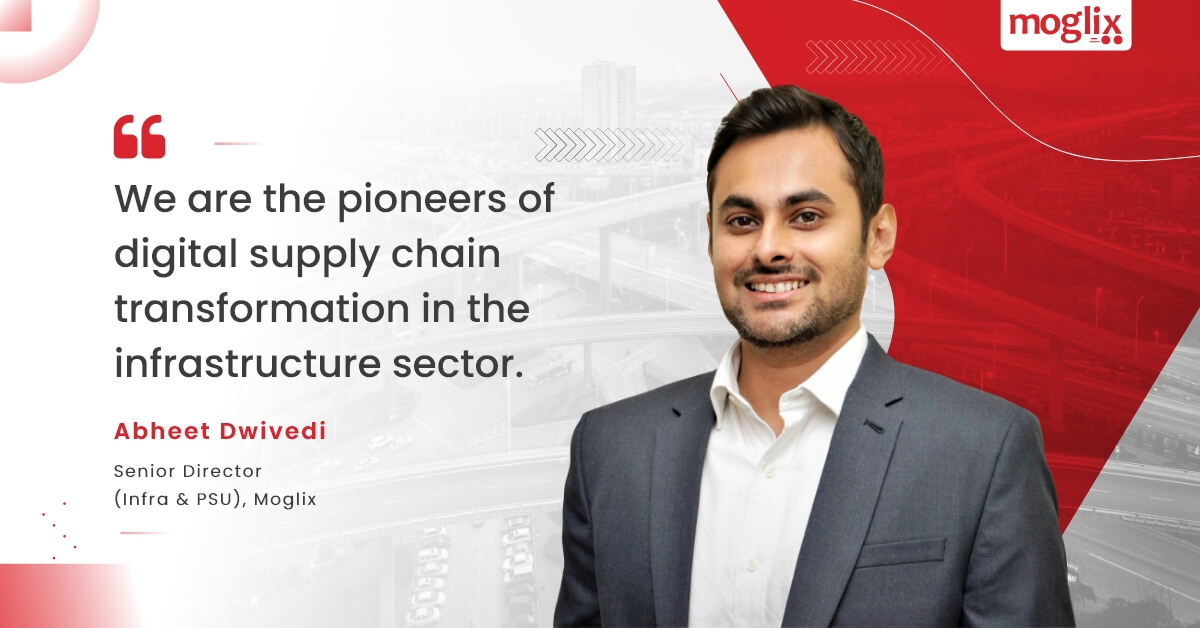
Moglix Aims to Give a Digital Boost to Big-Ticket Infra Projects
On the opportunities from big-ticket projects and tier-II, tier-III transformations
Year 2022 will be a complete game-changer in the infrastructure sector. There will be a plethora of mega projects in the National Infrastructure Pipeline. The planned expenditure on the National Infrastructure Pipeline over the next five years stands at USD 1.5 trillion. The 35 percent CAPEX spending hike is historic. With the PM Gati Shakti Master Plan, both the financial and digital project monitoring frameworks will be in place, pushing immaculate planning and agile execution.
Role of your platform towards bringing in the desired change for infra space
Large EPC companies in the infrastructure sector that work on turnkey projects face a significant pain point in calibrating actual project costs to the estimated project costs. They get orders on a fixed-price model. The delays in the execution phase lead to fluctuations in sourcing: both costs and availability along with the offline approval workflow gap. This is where technology integration in the infra supply chain space can help.
Moglix helps large EPC companies increase their adoption of a digital supply chain solution to make project management seamless and efficient. Further, the digital procurement solution offers intuitive insights into hidden pockets of efficiency that have enabled the EPC company to consolidate its supplier base.
Goals set for the year 2022
Moglix’s goal for the year 2022 in the infrastructure sector is to partner with EPC companies that are building India by enabling their supply chain through four levers. These levers include (i) thrust on expansion into core construction material categories, (ii) fostering innovation in new material development, (iii) digital procurement transformation, and (iv) promoting the adoption of sustainable construction materials, processes, and practices.
Pioneering B2B e-commerce and Supercharging SME Growth
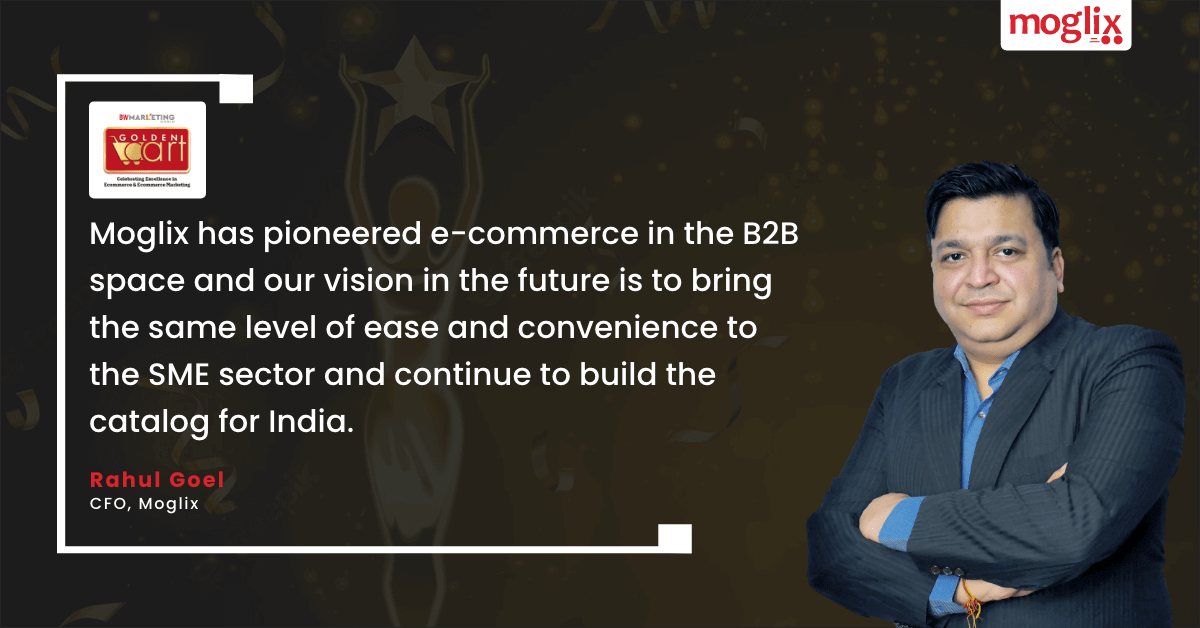
Pioneering B2B e-commerce and Supercharging SME Growth
Moglix is the first industrial B2B e-commerce platform to enter the unicorn club. Set up in 2015, we have grown at 500% for three consecutive years now. With 7 lac SKUs across 50+ categories of MRO spanning a price range of INR 50 to INR 1 crore, Moglix offers the largest and widest range of industrial goods in India.
We pioneered GST compliant e-invoicing required for audit trail and input tax credits at all levels in the B2B supply chain. We have enabled RFQ placing for getting quotes on bulk procurement. We also offer consultative selling for customers to improve performance and reduce product costs and the total cost of ownership. We enable suppliers to promote their brands and build equity with MSMEs and direct customers, offering discounts and product updates for customers under our loyalty program.
In the last 6 years, we have grown four to five times in terms of top line. We have enrolled 5,00,000 MSMEs and 16,000 suppliers into India’s digital economy and created jobs for our 1000 strong workforce. We have 35 locations in India, Singapore, UK and Middle East and we have expanded our global sourcing portfolio to a very large extent. We believe that India will be going through the same rush in the B2B e-commerce segment as the B2C segment. With deeper penetration of smartphones among rural and suburban users and digital financing, India has an opportunity to revel in the benefits created by the digital economy. In the next 5 years, we are looking at a 20X growth of the SME business.
